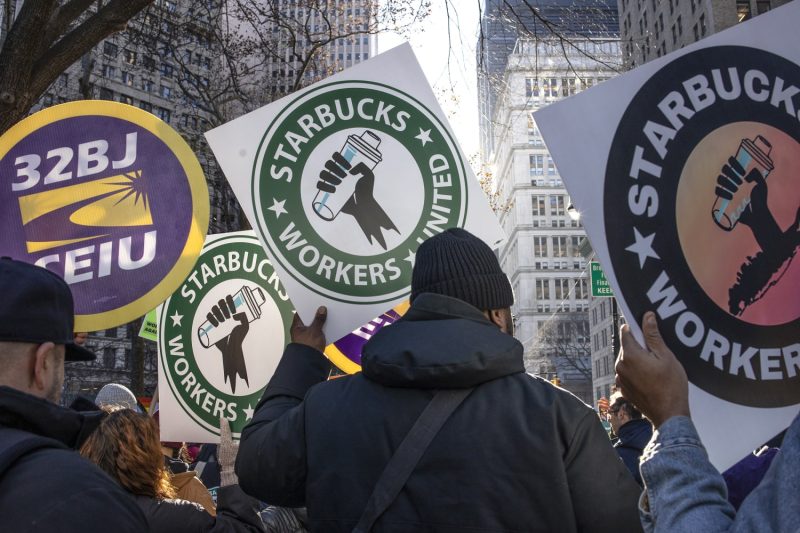**The Significance of Starbucks’ New CEO Commitment to Union Collaboration**
The recent appointment of Brian Niccol as the new CEO of Starbucks has sparked discussions and excitement within the company and the wider business community. Niccol’s commitment to working closely with unions as talks progress marks a significant shift in Starbucks’ approach to labor relations and signals a new chapter for the coffee giant.
Niccol’s decision to prioritize collaboration with unions is crucial for Starbucks, particularly in today’s business landscape, where consumers are increasingly conscious of a company’s ethical practices and treatment of workers. By openly engaging with unions, Starbucks is demonstrating its commitment to supporting its employees and fostering a positive work environment, which can enhance loyalty among workers and consumers alike.
Furthermore, Niccol’s focus on working with unions may pave the way for improved labor conditions and better wages for Starbucks employees. Collaboration with unions can lead to more balanced negotiations and agreements, ensuring that the interests of both the company and its workers are taken into consideration. This approach sets a positive example for other businesses and emphasizes the importance of building strong relationships with employee representatives.
By embracing union collaboration, Starbucks under Niccol’s leadership is showing a willingness to listen to and address the concerns of its workforce. In today’s competitive market, where talent retention and employee satisfaction are key drivers of success, this move could significantly benefit Starbucks in the long run. Creating a more inclusive and collaborative work environment can foster a sense of belonging and motivation among employees, ultimately boosting productivity and performance.
Overall, the decision of Starbucks’ new CEO Brian Niccol to commit to working with unions as discussions progress is a positive and progressive step for the company. By prioritizing collaboration with unions, Starbucks is not only aligning itself with evolving labor practices but also positioning itself as a socially responsible and forward-thinking organization. This move reflects a commitment to valuing its employees, enhancing corporate transparency, and striving for mutually beneficial relationships with all stakeholders.




























